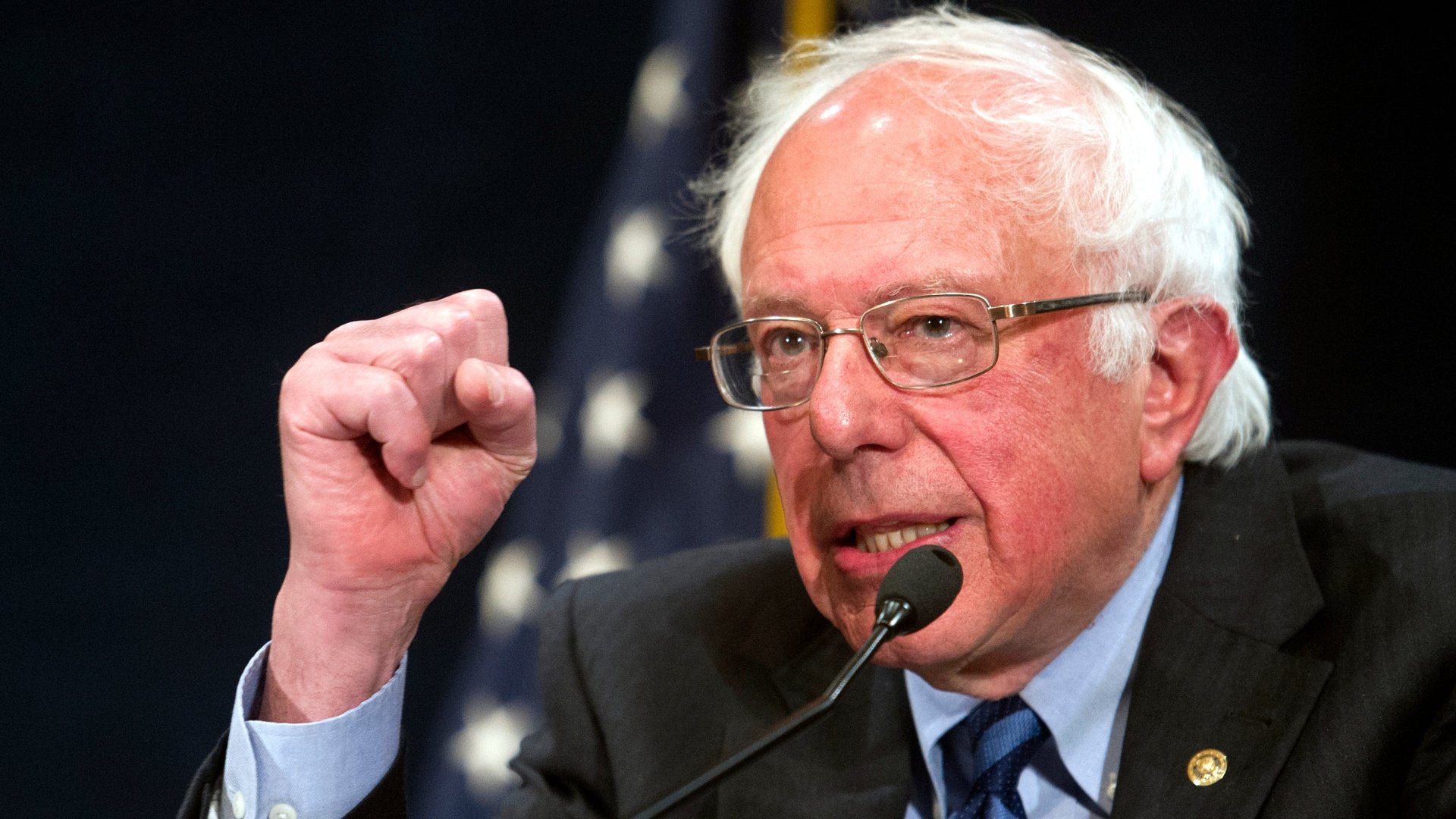Bernie Sanders’ new plan: A raucous floor fight at the Democratic convention
Could the confetti pageantry of the Democratic National Convention turn into a knock-down, drag-out fight over the party’s platform?


Could the confetti pageantry of the Democratic National Convention turn into a knock-down, drag-out fight over the party’s platform?
Bernie Sanders is interested in finding out. Unable to win over enough votes to seize the Democratic party’s nomination for president, he is now threatening a revolt at the party’s July convention in Philadelphia.
In a letter (pdf) to DNC chair Debbie Wasserman Schultz today (May 6), Sanders complained that the convention’s rule committees are stacked against him, and threatened to “mobilize our delegates to force as many votes as necessary to amend the platform and rules on the floor of the convention.”
It’s not exactly the unified front that the party wants to present in a general election versus Donald Trump, the presumptive Republican nominee. Running against Trump—who is facing his own challenges in unifying the GOP—appears to offer a ripe opportunity for a Democratic win, if the party can just get it together.
At this point, former Secretary of State Hillary Clinton is on an assured path to the nomination, with a prohibitive lead over Sanders in both raw votes and delegates. Her lead is far larger than any enjoyed by president Barack Obama when he defeated her in 2008.
The Sanders campaign seems to be torn. Campaign manager Jeff Weaver is promising to battle all the way to the convention, even if that means ignoring the wishes of the party’s voters. But the letter to the DNC suggests that the campaign is now shifting to its secondary goal: Using the convention to re-shape the Democratic party.
Sanders’ letter complains that the chairs of two key committees—former Representative Barney Frank and Connecticut Governor Dannel Malloy—are Clinton supporters, and thus biased against his campaign. It’s typical, of course, to see supporters of the nominee in these positions, but that traditional papering-over of differences won’t do in Sanders’ mind.
The last thing that Clinton wants is a floor battle over, say, a national $15 minimum wage or the Trans-Pacific Partnership, which would distract from what is typically a high-profile coronation ceremony for the nominee.
The letter is most likely a way to motivate Sanders voters to carry on, even if his candidacy appears a lost cause. But it’s also a shot across the bow of the Clinton campaign that—having been pulled left already—has no interest in granting further concessions to a nigh-defeated opponent.